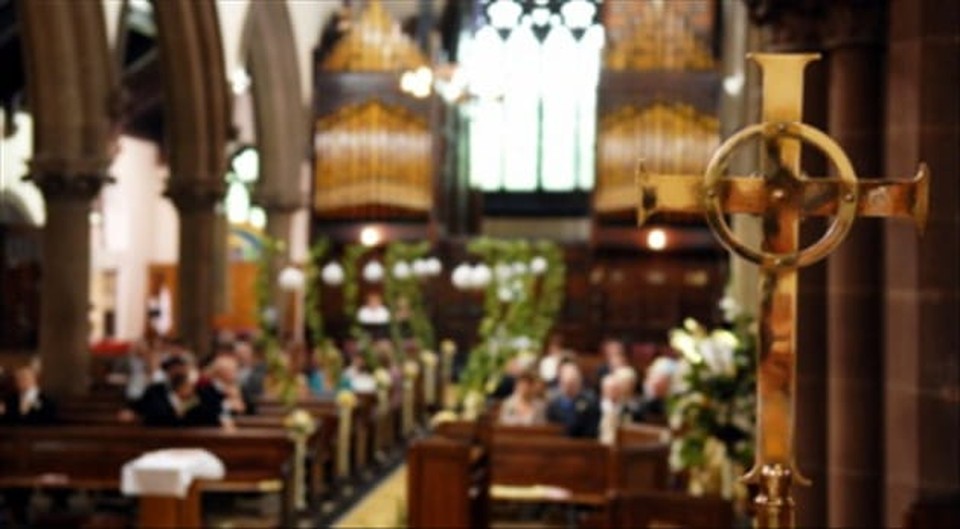People of the Book?

He declares his word to Jacob, his statutes and rules to Israel. He has not dealt thus with any other nation; they do not know his rules. Praise the LORD! (Psalm 147:19,20)
In a recent World editorial, Marvin Olasky outlines his approach to teaching comparative religions at the University of Texas. It involves a series of questions, represented by capital letters. The third of his questions is "B or Q?" — the Bible or the Quran? Which do people follow? Since 54 percent of the world population falls into the category of Christian/Jew/Muslim, you can cover a pretty fair swath by such a division. So this can be a helpful question for helping people, as Olasky puts it, "know the basic food groups" of world religions.
Or is it? I can't speak for Jews or Muslims, and I can't really speak for all Christians. But I've been around enough, seen enough, and talked to enough people to want to ask the question: Are Christians really a people of the Book? To what extent do they orient their thinking by, take their cues from, establish their priorities on the basis of, subject the entirety of their experience to, and seek ever deepening understanding of the teachings of Scripture? To what extent can we say that Christians are people of the Book? They carry one to church, follow along during the sermon or Bible study class, and may even spend a little time each day reading a few verses. But does this make them people of the Book? Perhaps the most we can say is what Olasky does, that they "adhere in some way (often loosely) to the Bible."
But can we be satisfied with that? Are you willing to have it said of you, as a follower of Christ, that you adhere in some loosey-goosey way to the very Word of Truth? If not, what then will be your standard for determining the extent to which you are, indeed, one of the people of the Book? What does such a person look like? Or what should he or she look like? To what should we aspire in wanting to be more consistently people of the Book?
Psalms 147 gives us much to think about as we address these questions. In this psalm we are given an opportunity to make two important and instructive observations: how God uses His Word and how the creation responds to it. Taken together in the light of our having been entrusted with the Word of God, we can begin to formulate a better understanding of what God expects of us as the people of the Book.
God's Use of His Word
Psalm 147:12-20 offers a "sideways" glance at God ministering His Word and the creation receiving that ministry. We can observe three aspects of God's ministry and three aspects of the creation's receptivity which, together, can help us to examine ourselves — and we shall — in order to see a little more clearly to what extent we are truly people of the Book.
Note first of all concerning God's ministry of His Word that it is continuous. The Lord Jesus Christ — the Word of God — is continuously applying Himself to the task of upholding the universe and everything in it (Hebrews 1:3). That's not just theological talk; it represents reality. The Word of God is being continuously brought to bear upon everything in the creation. Nothing escapes its continuous attention and power. John Polkinghorne, who is both a physicist and a theologian, has done some useful thinking on the question of what he refers to as the "causal joint" between the reign of Christ in the spiritual realm and the realities of life in the physical universe. He suggests that there is "top-down causality" in which God through Christ flows "information" continuously and ineffably against all of creation, and this alone accounts for its existence and continuance.
So God is continuously plying His Word against the reality of the universe. Second, and related to this, God's application of His Word to the world is comprehensive. Nothing is beyond His reach; nothing can exist unless His Word attends to it. Even the fallenness of the world — all its brokenness, waste, tragedy, destruction, and disrepair — depends for its continuance on the Word of God. God "sends out His command" to the earth and all of creation, continuously and comprehensively. Nothing escapes the light and power of the Word of God.
Third, God's application of His Word to the creation is constructive. He is especially concerned for the edification of His people (vv. 12-14), that they might be well-led (v. 13), well-blessed (vv. 13, 14), and kept in perpetual well-being (v. 14). In Ephesians 1:22-23 Paul indicates that all the energy that the Word of God is bringing to bear against "all things" is for the sake of the Church, that she might grow strong as the fullness of the Lord and fill all the world with her Christ-bearing presence.
So God ministers His Word continuously. The creation gets no rest from the attention and exertions of the Word of God. He ministers it comprehensively. All of creation is the object of His ministry. And He ministers His Word constructively, with a view, especially, of building His Church to the measure of the stature of the fullness of Jesus Christ, and that all over the world (Ephesians 4:12-16; Matthew 28:18-20).
The Creation's Reception of the Word
We may also observe three aspects of the creation's reception of the Word from God, as these are indicated in Psalm 147:15-18. Here we may be brief. First, the creation receives the Word of God eagerly. The Word literally runs rampant through the creation, which makes no effort to resist it but seems eagerly disposed to receive and advance it throughout its length and breadth.
Second, the creation receives the Word entirely. The whole Word that God sends comes to the whole creation.
Third, the creation receives the Word of God effectively. It does in, for, and through the creation whatever God intends, and the creation willingly complies so that the Word may have God's desired effect.
We see, then, in the example of the impersonal creation additional guidelines for thinking about what it might mean to be a people of the Book: to receive the Word of God eagerly, entirely, and effectively, to accomplish the purposes of God.
A Little Test
So let's test ourselves. Here are some statements and scales you can use to determine how the criteria of God's use of the Word and those of creation's reception of the Word may indicate something about the extent to which you could describe yourself as one of the people of the Book:
I am consistent each day, and all day long, in reading, meditating on, and thinking about the Bible and what God is teaching me through His Word.
| 1 | 2 | 3 | 4 | 5 | 6 | 7 | 8 | 9 | 10 |
| Not at all | All the time | ||||||||
I read the Bible in order to discover what it has to say about every area of life; I want to develop a "Biblical worldview" as I read and study the Bible.
| 1 | 2 | 3 | 4 | 5 | 6 | 7 | 8 | 9 | 10 |
| Not at all | All the time | ||||||||
Whenever I do read the Bible, I'm looking for ways that I might grow, or that I might help others grow in the Lord, or come to know Him.
| 1 | 2 | 3 | 4 | 5 | 6 | 7 | 8 | 9 | 10 |
| Not at all | All the time | ||||||||
I can hardly wait to get time in the Bible each day; I eagerly look forward to every moment of reading, studying, meditating on—drinking in!—the Word of God.
| 1 | 2 | 3 | 4 | 5 | 6 | 7 | 8 | 9 | 10 |
| Not at all | All the time | ||||||||
I read through all of the Scripture regularly, and I'm always looking for new ways that the Bible can speak to my life, my society, my culture, and the world in which I live.
| 1 | 2 | 3 | 4 | 5 | 6 | 7 | 8 | 9 | 10 |
| Not at all | All the time | ||||||||
The Bible is changing my life; I can see it and my friends comment on it. And I'm eager to see it change the lives of others as well.
| 1 | 2 | 3 | 4 | 5 | 6 | 7 | 8 | 9 | 10 |
| Not at all | All the time | ||||||||
Article Page Break Here
A Sacred Trust
So, how'd you do? Can you describe yourself as a person of the Book? Or do you just have a kind of loose adherence to Scripture as somehow a part of your life, although not in any consistent or transforming way? What have you learned about your own commitment to the Bible, and what does this exercise suggest about any changes you might need to make?
As the followers of Christ we have been given His Word as a sacred trust (Psalm 147:19,20). God has given us the Bible, and He has sent His Spirit to lead us into all truth and teach us the things we need to know, as we compare one section of Scripture with another and listen for His "voice" to instruct, convict, and transform us (1 Corinthians 2:12-13). And He has appointed to us the ministry of this Word for the purpose of making all the nations disciples (Matthew 28:18-20). No other people in the world has been entrusted with this glorious treasure! If we fail to receive the Word like the creation does, and to minister it like God Himself, how will the blessings of the Word ever reach the billions and billions who are still living in the darkness of ignorance and unbelief?
If we would call ourselves people of the Book, then let us set about the business of making that claim real. What is the Lord saying to you today about your stewardship of the sacred trust of His Word?
For Reflection
Do you need to set your goals for Scripture reading and study a little higher? Is there someone you can connect with for mutual accountability and encouragement as you press on to become a person of the Book?
T. M. Moore is dean of the Centurions Program of the Wilberforce Forum and principal of The Fellowship of Ailbe, a spiritual fellowship in the Celtic Christian tradition. He is the author or editor of seventeen books, and has contributed chapters to four others. His essays, reviews, articles, papers, and poetry have appeared in dozens of national and international journals, and on a wide range of websites. His most recent books are The Ailbe Psalter and The Ground for Christian Ethics, (Waxed Tablet). He and his wife and editor, Susie, make their home in Concord, Tenn.
Originally published May 23, 2007.





